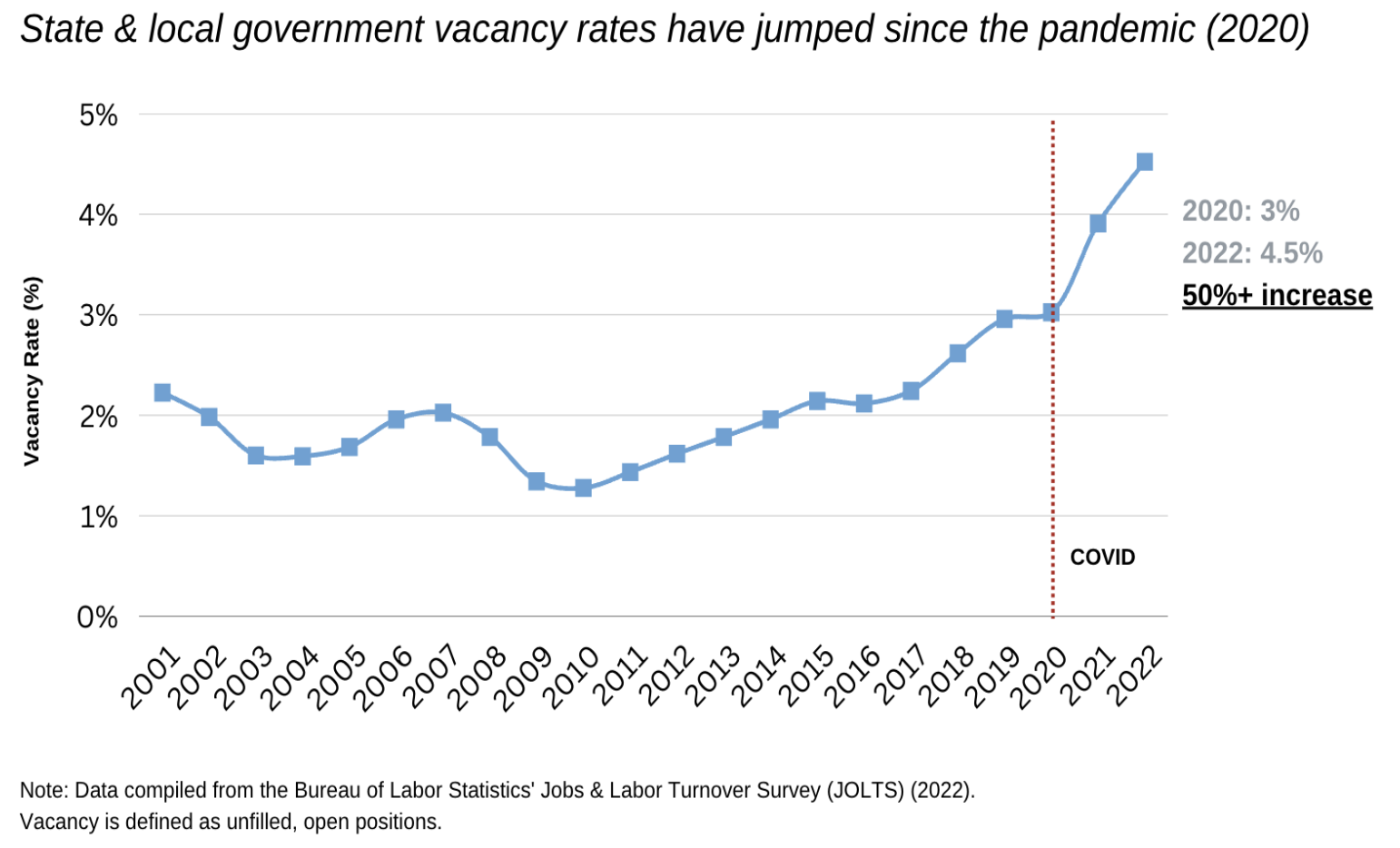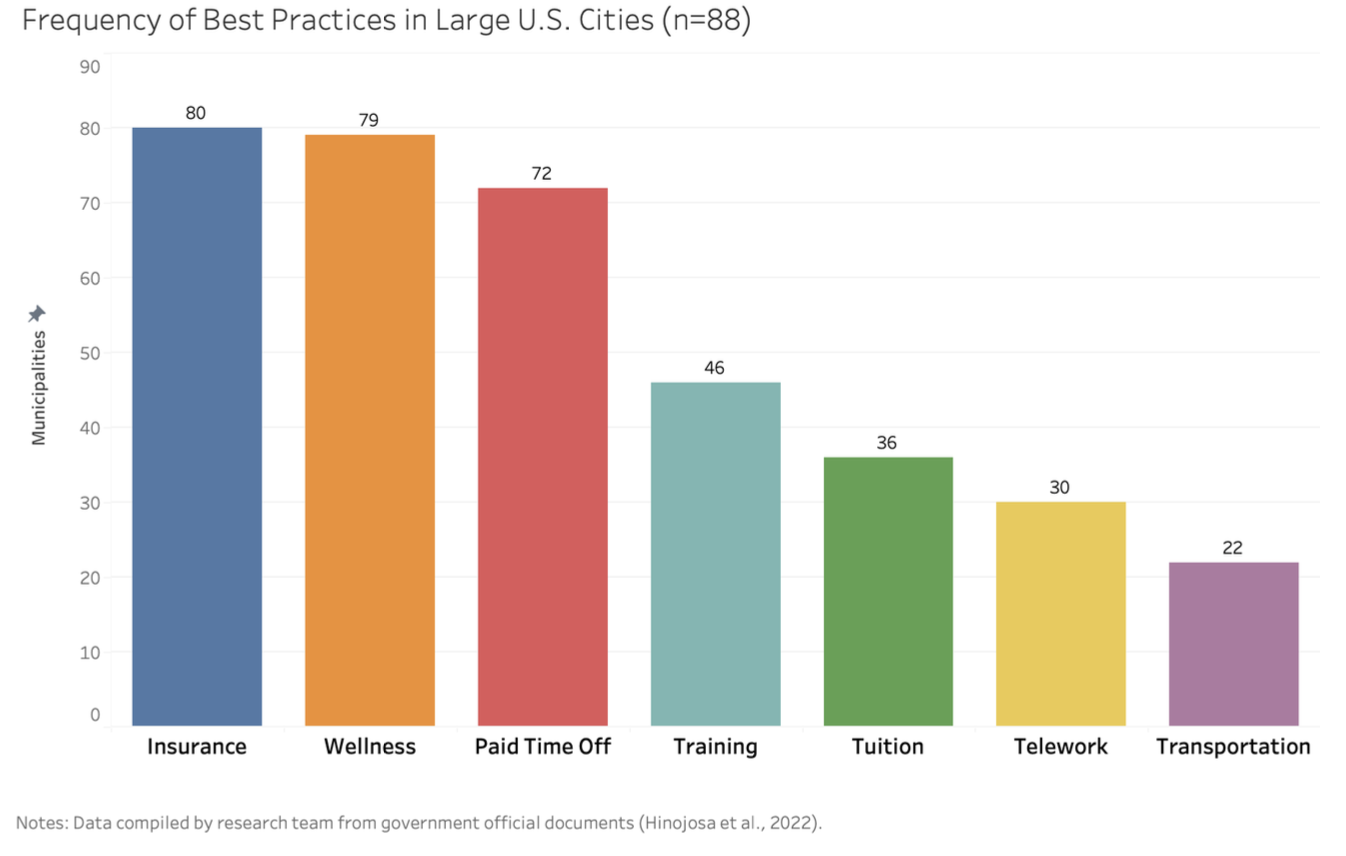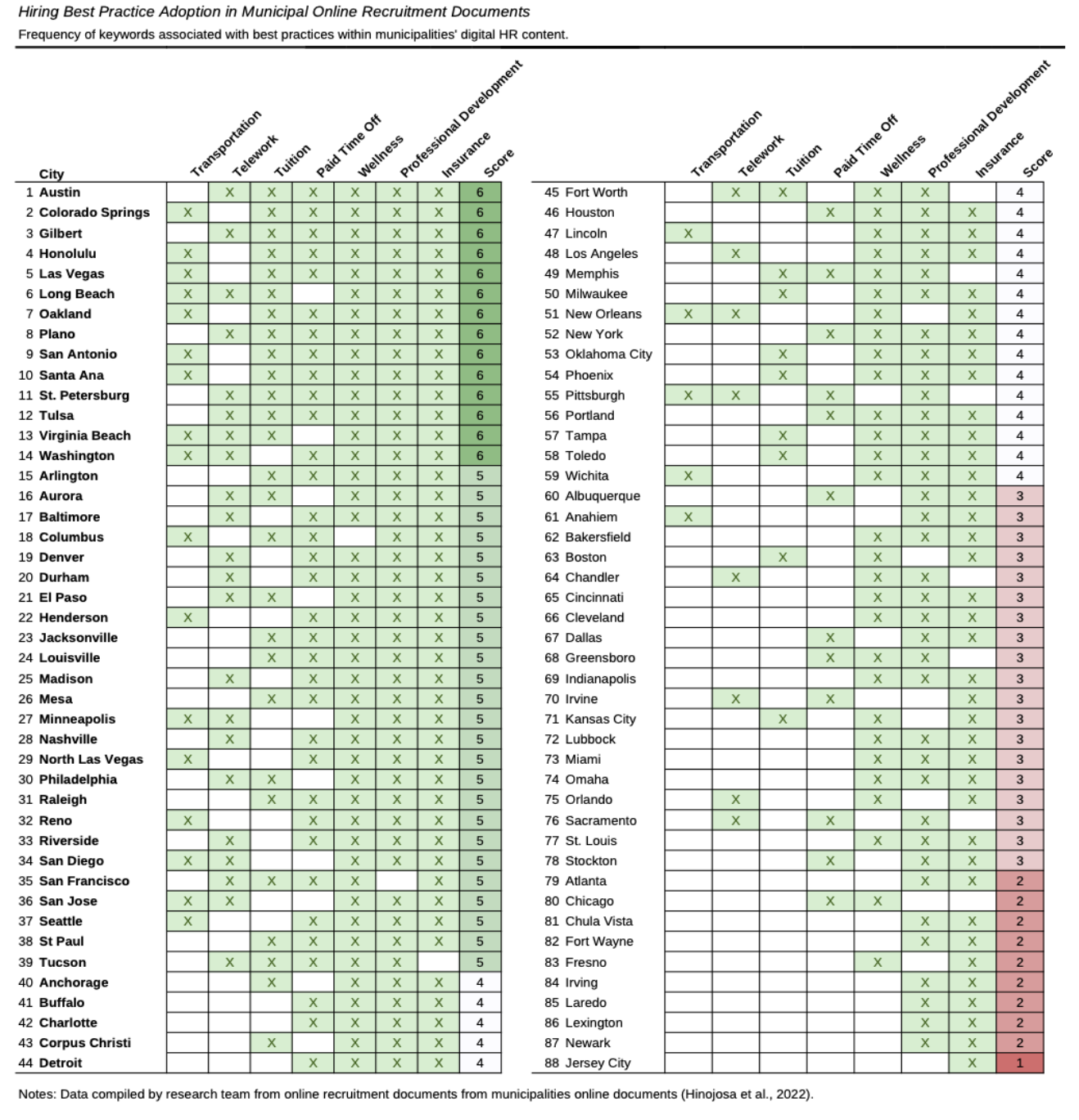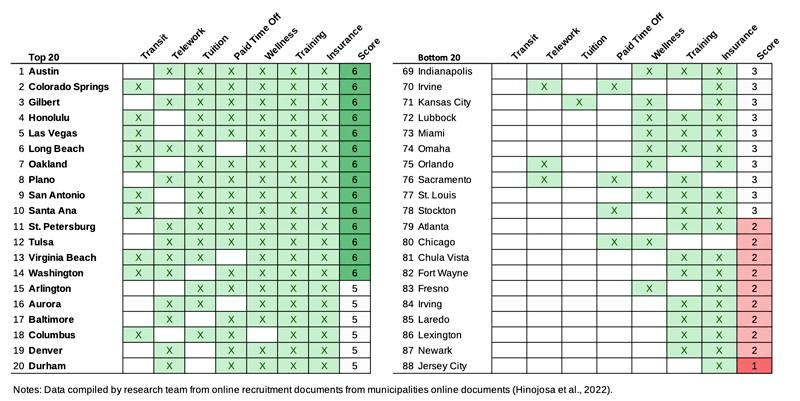As the world continues to recover from the impacts of the COVID-19 pandemic, municipalities are facing new and complex challenges in the labor market. These challenges are compounded by emerging theories around the “future of work” (FOW), which require innovative strategies for human resources departments to attract and retain top talent. Despite the importance of these challenges, the absence of reliable best practices in the literature has handicapped municipalities’ ability to compete for the best workers, leading to open positions within city hall and impacting the ability of the government to provide essential public services.

To address these challenges, our research team conducted a study to examine the current challenges in recruiting and hiring for municipalities. The study used mixed methodologies, including a compilation of academic, industry, and practitioner best practices, a literature review and content analysis, and a review of job postings and recruitment materials from all 88 “large” U.S. municipalities (cities with over 250K population). The research team analyzed 350 publications in the academic and gray literature to determine the top best practices in recruitment strategies.
The top seven best practices identified were:
- Flexible Work Arrangements (telework or work from home)
- Professional Development and Job Training
- Health & Wellness programs
- Insurance Plans
- Paid Time Off
- Tuition Assistance
- Transit Subsidies
The publication, Future of Work for Cities, summarizes the findings. The research also sheds light on the challenges that municipal leaders face when trying to implement these best practices, including resourcing, workforce planning, bureaucracy, and effective job descriptions.

To assess the implementation of FOW strategies, the research team analyzed job descriptions and other online recruitment materials from all 88 large U.S. municipalities, totaling over 1,000 individual job descriptions from cities.

The analysis revealed that no city featured all of the best practices, with the lowest-scoring municipality being Jersey City. The most common best practices featured in online recruitment materials were insurance, wellness, and paid time off, while the least common were transportation subsidies, telework, and tuition reimbursements.

Based on the findings of the study, the research team has four recommendations for municipal leaders:
- Promote data-driven evaluative tools such as the research team’s futureofwork.city platform
- Modernize and standardize job descriptions
- Recruit talent through modern social channels
- Highlight and share national FOW best practices, including the development of flexibility policies, investment in professional development and training, and expansion of employee wellness programs and benefits.
Adopting these recommendations will help local governments become more competitive in the post-pandemic tightened labor market and attract and retain the best workers. The research team also conducted a linear analysis to explore correlations between municipal characteristics and best practice adoption and found that population and budget can affect a municipality’s ability to implement FOW best practices. By addressing the challenges and implementing best practices in recruitment and hiring, municipalities can ensure that they have the workforce they need to provide essential public services to their communities.
Note: This research was conducted by public administration researchers (MPA) from the University of Southern California (USC): Maha Rizvi, Iveth Watts, Estevan Hinojosa, and Abhi Nemani. The project is licensed under CC BY-SA 4.0.

